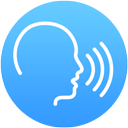









The theory test determines whether you have the knowledge required to be a safe and environmentally conscious driver. You have to pass the theory test before you are allowed to take the practical driving test.
In order to take the theory test you must be a permanent resident of Sweden or have studied in Sweden for at least six months. You must also have completed both parts of the risk course and it must still be valid.
The fee for a theory test is 420 kr. On weekends and after 18:00 on weekdays, the fee is 520 kr.
You perform much better after a good night's sleep. In other words, do not stay up the night before to study – if you have studied properly and feel confident in your knowledge of the driver's licence theory, getting a good night's sleep is much more important than studying road signs and traffic rules for a few more hours.
This video, which is in English, gives you a good picture of how the theory test is carried out.
If you have dyslexia, ADHD, autism, or any other disability that requires special support when reading, you can apply to have the test adapted. You can apply to take the following adapted theory tests:
Trafikverket has a zero-tolerance policy towards cheating. Before the test, you must pledge to not use any unauthorized aids or otherwise cheat on the test.
This is what will happen if you cheat:
Remember that mobile phones must be completely switched off in the test hall.
When taking the test, it is important to read each question and all the options carefully. The options can be very similar, so it is therefore important that you truly understand the question before answering.
Do not stress, but try to not get stuck on any question for too long either. After all, you only have 43 seconds per question, on average, and you have to answer all questions before the time runs out. If you get stuck on a question, it is better to mark it and return to it later, once you have answered the other questions.
If there is time left when you have answered all the questions, you should review the questions again to ensure that you have not misunderstood something or have chosen the wrong option by mistake.
The theory test determines whether you have the knowledge required to be a safe and environmentally conscious driver. The test assesses your knowledge within five areas:
Most incorrectly answered questions on the test are about traffic rules. For example, questions about what road signs and road markings mean, what rules apply at different types of junctions and what rules apply when driving on different types of roads.
Below you can read which topics the different areas cover.
The questions can be about the following topics:
The questions can be about the following topics:
The questions can be about the following topics:
The questions can be about the following topics:
The questions can be about the following topics:
A passed theory test is valid for four months. You must pass the practical driving tests within the four-month validity period. Otherwise, you have to retake both tests.
 Your result is shown on the screen immediately after the test. You need to answer 52 of the 65 questions correctly to pass the test
Your result is shown on the screen immediately after the test. You need to answer 52 of the 65 questions correctly to pass the test
Your result is shown on the screen immediately after the test. Your result is also sent to your email address. What happens next depends on whether or not you have passed the test.
A passed theory test is valid for four months. This means that you must pass the driving test within four months to receive your licence. Otherwise, you will have to retake both tests.
If you fail the theory test you have to book a new test and try again. It is important that you study more before taking the next test.
If you have already booked a practical driving test you have to cancel or reschedule the test at least 24 hours before the test. If you cancel or reschedule too late, you will still have to pay the test fee.